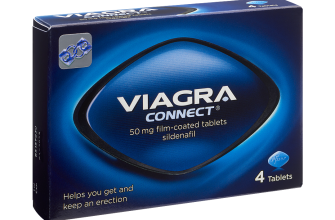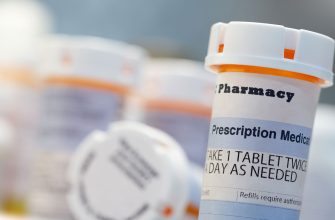Begin with your doctor’s guidance. They’ll assess your health and determine the appropriate starting dose, typically 50mg. This isn’t a one-size-fits-all solution; your personal needs dictate the best approach.
The usual dose ranges from 25mg to 100mg, taken as needed, one hour before sexual activity. Never exceed the maximum recommended daily dose. Increased dosages don’t necessarily equate to better results and carry increased risk of side effects.
Important Note: Viagra’s effect varies among individuals. Factors such as age, overall health, and other medications influence how your body responds. Open communication with your physician is key to optimizing treatment.
Possible Side Effects: Common side effects include headaches, flushing, nasal congestion, and visual disturbances. Rarely, more serious issues can occur. Report any concerning symptoms immediately to your doctor. They can adjust your dosage or recommend alternative options.
Interactions: Be sure to inform your physician of all medications you are currently taking, including over-the-counter drugs and supplements. Certain medications can interact negatively with Viagra, potentially leading to adverse reactions.
Remember, this information serves as a general guide. Consult your doctor for personalized recommendations tailored to your specific circumstances. Self-medicating can be dangerous; professional advice is vital for safe and effective treatment.
- Viagra Usage and Dosage: A Comprehensive Guide
- Dosage Adjustments
- Frequency of Use
- Important Considerations
- Possible Side Effects
- Medication Interactions
- Storage
- Missed Dose
- Understanding Viagra’s Mechanism of Action
- Increased cGMP Levels: The Key to Erection
- Factors Influencing Viagra’s Effect
- Beyond Erection: Additional Effects
- Appropriate Consultation is Crucial
- Recommended Viagra Dosage and Administration
- Viagra and Food Interactions: What to Avoid
- High-Fat Meals: Impact on Absorption
- Alcohol: Potential for Interactions
- Specific Medications
- Important Note:
- Common Side Effects of Viagra and How to Manage Them
- Dealing with Flushing and Nasal Congestion
- Addressing Digestive Issues and Vision Changes
- Managing Muscle Aches and Back Pain
- When to Seek Immediate Medical Attention
- Important Note on Interactions
- Potential Risks and Contraindications of Viagra
- When to Consult a Doctor Regarding Viagra Usage
- Beyond Emergency Situations
- When Viagra Isn’t Working
Viagra Usage and Dosage: A Comprehensive Guide
Always consult your doctor before starting Viagra. They will determine the appropriate dosage based on your health and medical history. The typical starting dose is 50mg, taken approximately one hour before sexual activity.
Dosage Adjustments
Your doctor may adjust your dosage to 25mg or 100mg, depending on your response and individual needs. Never exceed the maximum recommended dose of 100mg in a 24-hour period.
Frequency of Use
Viagra is intended for use as needed, not daily. Taking it more frequently than prescribed can increase the risk of side effects.
Important Considerations
Certain health conditions, medications, and age may affect the recommended dosage. Grapefruit juice can interact negatively with Viagra, so avoid consuming it.
Possible Side Effects
Common side effects include headache, flushing, nasal congestion, and indigestion. More serious side effects are rare, but seek immediate medical attention if you experience sudden vision loss, chest pain, or prolonged erection (priapism).
Medication Interactions
| Medication Type | Interaction |
|---|---|
| Nitrates | Dangerous interaction; avoid use together. |
| Alpha-blockers | May require dosage adjustment. |
| Other erectile dysfunction medications | Consult your doctor before combining. |
Storage
Store Viagra at room temperature, away from moisture and direct sunlight.
Missed Dose
Take Viagra only as needed for sexual activity. Do not double the dose to make up for a missed one.
Understanding Viagra’s Mechanism of Action
Viagra, or sildenafil, works by inhibiting an enzyme called phosphodiesterase-5 (PDE5). This enzyme breaks down cyclic guanosine monophosphate (cGMP), a crucial molecule for achieving and maintaining an erection.
Increased cGMP Levels: The Key to Erection
By blocking PDE5, Viagra increases cGMP levels in the smooth muscle cells of the penis. Higher cGMP levels cause these muscles to relax, leading to increased blood flow into the erectile tissue.
- This increased blood flow fills the corpora cavernosa, the spongy tissue responsible for penile rigidity.
- The resulting pressure compresses the veins, preventing blood outflow and maintaining the erection.
Factors Influencing Viagra’s Effect
Several factors influence how effectively Viagra works:
- Dosage: The prescribed dosage directly correlates with PDE5 inhibition strength, impacting cGMP levels and subsequently, erectile function.
- Underlying Health Conditions: Existing health problems like heart disease or diabetes may affect blood flow and the drug’s effectiveness.
- Medication Interactions: Some medications can interfere with Viagra’s metabolism or action.
- Individual Variability: Responses to medication vary between individuals, requiring personalized dosage adjustments under medical supervision.
Beyond Erection: Additional Effects
While primarily known for its effect on erectile function, Viagra’s inhibition of PDE5 can also have some secondary effects, such as mild headaches or flushing. These are generally transient and not serious.
Appropriate Consultation is Crucial
Always consult a healthcare professional before using Viagra. They will help determine the correct dosage and address potential risks based on your individual health status and medical history. Never self-medicate.
Recommended Viagra Dosage and Administration
The typical starting dose of Viagra is 50 mg, taken as needed, about one hour before sexual activity.
Your doctor might adjust this based on your response and individual needs. Possible adjustments include:
- Increased dosage: If 50 mg is insufficient, your doctor may increase it to 100 mg. This is the maximum recommended dose.
- Decreased dosage: If you experience side effects, your doctor may reduce the dose to 25 mg.
Follow these guidelines for administration:
- Take Viagra only as directed by your physician.
- Swallow the tablet whole with a glass of water.
- Avoid taking Viagra with high-fat meals, as this can delay absorption.
- Do not take more than one tablet in a 24-hour period.
Remember, Viagra’s effects vary between individuals. Consistent communication with your doctor is key to finding the optimal dose and managing potential side effects.
Consult your doctor immediately if you experience severe side effects such as chest pain, prolonged erection (priapism), sudden vision loss, or hearing loss.
Viagra and Food Interactions: What to Avoid
Avoid grapefruit and grapefruit juice. They contain compounds that inhibit the enzymes responsible for breaking down Viagra, leading to increased Viagra levels in your blood. This can heighten the risk of side effects like low blood pressure and headaches.
High-Fat Meals: Impact on Absorption
While not a strict contraindication, consuming a very high-fat meal before taking Viagra can slightly delay its absorption. This means it might take longer to feel the effects. Opt for a lighter meal or snack to ensure quicker onset.
Alcohol: Potential for Interactions
Mixing Viagra with alcohol can increase the risk of certain side effects, particularly low blood pressure and dizziness. Moderate your alcohol intake, or avoid it completely, while using Viagra. Consult your doctor if you have concerns about combining alcohol and Viagra.
Specific Medications
Always inform your doctor about all medications you are currently taking, including over-the-counter drugs and supplements. Some medications can interact negatively with Viagra, potentially leading to serious complications. This includes nitrates, often prescribed for heart conditions.
Important Note:
This information is for general guidance only and does not replace professional medical advice. Always consult your doctor or pharmacist before taking Viagra, particularly if you have underlying health conditions or are taking other medications. They can assess your individual needs and provide personalized recommendations regarding food and medication interactions.
Common Side Effects of Viagra and How to Manage Them
Many men experience mild side effects. Headache is common; try over-the-counter pain relievers like ibuprofen or acetaminophen. If headaches are severe or persistent, consult your doctor.
Dealing with Flushing and Nasal Congestion
Facial flushing (redness) and nasal congestion are also frequent. These usually subside on their own. Drinking plenty of water can help with flushing. For nasal congestion, a saline nasal spray might provide relief. If symptoms persist or worsen, contact your doctor for guidance.
Addressing Digestive Issues and Vision Changes
Some men report indigestion, heartburn, or upset stomach. Smaller meals and avoiding fatty foods before taking Viagra can help. If digestive problems are severe, speak with your doctor. Blurred vision or changes in color perception are less common but should be reported to your physician immediately. This may require a dosage adjustment or alternative treatment.
Managing Muscle Aches and Back Pain
Muscle aches and back pain can occur. Gentle exercise and rest can help. Over-the-counter pain relievers might provide temporary relief. However, if pain is intense or persistent, consult your doctor. They can assess the situation and provide appropriate advice.
When to Seek Immediate Medical Attention
Seek immediate medical help if you experience: chest pain, prolonged erection (priapism), sudden vision loss, or hearing loss. These are rare but serious side effects requiring prompt medical attention.
Important Note on Interactions
Viagra can interact with other medications. Always inform your doctor about all medications, supplements, and herbal remedies you are taking. This helps prevent potential interactions and ensures your safety.
Potential Risks and Contraindications of Viagra
Consult your doctor before using Viagra, especially if you have pre-existing conditions. Viagra can interact negatively with certain medications, including nitrates used to treat chest pain. This combination can cause a dangerous drop in blood pressure.
Heart problems are a significant contraindication. Viagra increases blood flow, potentially straining a weakened heart. Discuss your cardiovascular health thoroughly with your physician before considering Viagra.
Vision problems, such as sudden vision loss or changes in color vision, have been reported. Report any visual disturbances immediately.
Prolonged or painful erections (priapism) are a serious risk, requiring immediate medical attention. This condition can damage penile tissue.
Viagra may cause headaches, flushing, nasal congestion, and indigestion. These side effects are generally mild and temporary, but inform your doctor if they persist or worsen.
Men with severe liver or kidney disease should exercise caution. Dosage adjustments may be necessary, or Viagra may be contraindicated altogether.
Stroke and heart attack are rare but serious risks. Individuals with existing risk factors should discuss the risks with their doctor before use.
Do not use Viagra if you are allergic to sildenafil or any of its ingredients. Allergic reactions can range from mild skin rashes to severe anaphylaxis.
This information is not exhaustive and doesn’t replace professional medical advice. Always follow your doctor’s instructions and discuss any concerns you have.
When to Consult a Doctor Regarding Viagra Usage
Schedule an appointment immediately if you experience chest pain, irregular heartbeat, or prolonged erection (lasting more than four hours). These are serious side effects requiring prompt medical attention.
Beyond Emergency Situations
Consult your doctor before starting Viagra if you have heart problems, high or low blood pressure, kidney or liver disease, blood cell disorders, stomach ulcers, or bleeding disorders. Also, discuss your use of other medications, especially nitrates, as they can interact dangerously with Viagra.
Note: Viagra isn’t suitable for everyone. Your doctor will assess your health and determine if Viagra is the right treatment for you, potentially suggesting alternatives.
When Viagra Isn’t Working
If Viagra isn’t producing the desired results after several attempts, or if you experience consistent side effects, make an appointment with your doctor. They can adjust your dosage, explore alternative treatments, or investigate underlying health issues impacting erectile function.






